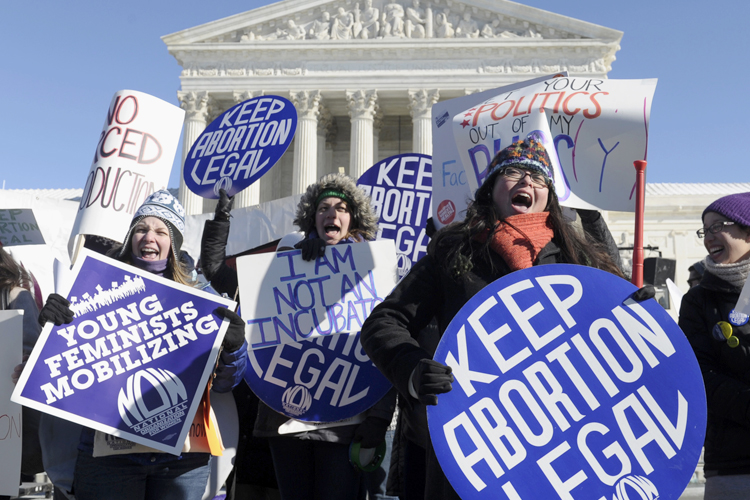The Oklahoma Supreme Court halted two recent abortion restrictions on Tuesday, both of which reproductive rights activists claim would dramatically reduce access to abortion care across the state. The court ruled that the measures, which lower court judges allowed to be implemented beginning Nov. 1, will be delayed “until the constitutionality of the Act is fully and finally litigated,” Reuters reports.
A portion of the blocked Oklahoma law includes provisions for all reproductive healthcare providers to receive admitting privileges from hospitals within 30 miles of centers where abortions are performed, a restriction that has also been pushed in states such as Texas and Mississippi. Supporters of such measures claim they are intended to protect women’s health, while pro-choice activists and healthcare professionals maintain that admitting privileges are not medically necessary.
The state supreme court also blocked a two-pronged measure that would reduce access to medication abortion by changing the guidelines for use. The law sets new limits for medication abortion and changes the criteria for administering abortion-inducing drugs, banning the procedure after 49 days and requiring doctors to comply with outdated FDA protocol. As one abortion provider told Salon earlier this year, legislative efforts to enforce specific medication protocols often result in doctors being required to administer higher dosages of abortion-inducing drugs, which contradict best practices in the field and can put women’s health at risk.
The Center for Reproductive Rights, which challenged both measures as unconstitutional, will continue litigation in Oklahoma’s lower courts.
“Today the Oklahoma Supreme Court handed the women of Oklahoma a crucial victory by protecting their constitutional rights and restoring critical options for those seeking safe and legal abortion services,” Nancy Northup, president and CEO of the center, said in a statement. “Time and time again, courts are seeing that the true motive behind these underhanded and baseless restrictions is to push essential reproductive health care services out of reach for as many women as possible.”

